 The laws of copyright and plagiarism don’t bother most authors very much. They know the laws exist but, because they aren’t copying the work of others, they don’t give them a second thought. However, there are two circumstances when we do have to think about that little c inside a circle, or at least the consequences of it. The first is inadvertent, or accidental plagiarism and the second is when our own work is plagiarised, or our work is stolen. Our brains retain a lot of what they take in, even when we don’t realise it. I’m sure we have all experienced the moment when we think we have met someone before, because their face seems familiar.  We are probably right, because their features have lodged themselves in our memory without us even being aware of it, however fleeting the original encounter. So it is with what we read. We may have read a book forty years ago (if we are old enough) but bits of it may appear in our conscious mind unbidden, without us knowing where they have appeared from. What may appear to be an original thought is actually something remembered from the book we read all that time ago. So, by including that thought in our book, we are inadvertently plagiarising the work of someone else. The second instance is more likely, and more serious, for most authors. 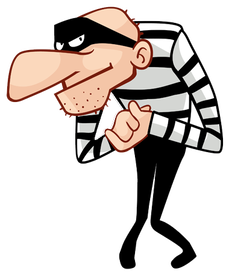 If parts of our book appear in someone else’s work, we have a right to feel aggrieved. Worse, if someone steals our whole book and publishes it under their name (or, more likely, a pseudonym), we have the right to feel very, very aggrieved. So, what do the laws of copyright say? They vary from country to country, so I can only generalise here. But all copyright laws are designed to protect the work of the originator while they are alive and for some period after their death as part of their estate. At the moment Britain is still working under EU copyright law, which protects the work of the author for 70 years after their death, or for 70 years after the death of the last surviving author of a co-authored work. So, if you co-author a book, it is protected for 70 years after the death of whichever author dies last. 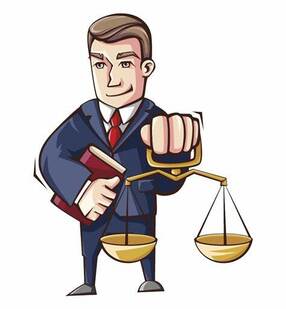 Under American copyright law for work created after 1st January 1978, the work is also protected for 70 years after the death of the author or last surviving co-author. Work created prior to that date is subject to different periods of protection, depending on the law at the time the work was created. The majority of countries agree to uphold the copyright laws of other countries.. That means a British author can be sued in the UK for a breach of copyright that occurs in the USA, and vice versa, so don’t be fooled into thinking you are safe just because you break the laws in a country in which you don’t live. While that looks good on paper, not all countries agree to co-operate or turn their agreement into action  Once the copyright period has expired, the work becomes “public domain”. This doesn’t mean anyone can just claim the work as their own, because that would still be plagiarism. But it does mean that anyone can publish the work under the original author’s name and not have to pay anything to the deceased’s estate. Authors often use photographs or artwork to illustrate their books, or their book covers, and those images may be (probably are) subject to copyright. If you didn’t create the art or take the photograph, then you haven’t got permission to use it. You must obtain the permission of the originator or purchase a licence to use it. Companies like Shutterstock and Depositphotos sell licenses to use the work of the people who created the images that are displayed on their websites. If you get your images from some other sources you may have to dig around to find out how to obtain permission to use them or to buy a licence. Incidentally, licences to use images are usually limited to a maximum number of hard copies, so make sure you know what the limit is so that you don’t accidently exceed it. Renewing the licence for more copies is usually cheaper than the original cost. 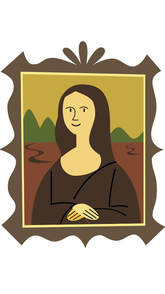 It is very easy to breach the copyright for images without realising you are doing it. Let me illustrate (bad pun) by using an example. Let’s imagine that I want to illustrate this blog with an image of the Mona Lisa. Now, Leonardo da Vinci has been dead for several centuries, so his best known work is clearly public domain. However, any photograph of the Mona Lisa may be subject to copyright. Given the “70 years after death” rule, it could mean a photo taken as early as 1923 (possibly even earlier) is still under copyright, if the photographer died after 1953. Photos held in archives or printed in newspapers and magazines are always subject copyright and companies like Getty Images buy the copyright for photographs in private collections and make money by selling licences to use them. Many a blogger and/or author has fallen foul of the law because they didn’t realise any of that. 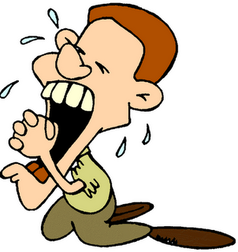 So, what happens if you commit an inadvertent act of plagiarism? Well, once you have read the work you are alleged to have plagiarised and confirmed that your story is so similar to it that it isn’t really your story, then a profuse and sincere apology and the withdrawal of the book from sale is usually enough to satisfy the original author. That doesn’t prevent the original author from taking legal action, but the fuss and cost involved usually means that they won’t involve the courts. However, in the UK if you deny that your work is based on theirs, they can take you to a Copyright Tribunal (see more below), which costs only £50. Dan Brown has been sued three times over accusations of plagiarism in his Robert Langdon novels, though none of the suits against him have been won. But some American lawyers are getting very rich from these lawsuits. If you were to lose a lawsuit, it could cost you everything you have – and I do mean everything. 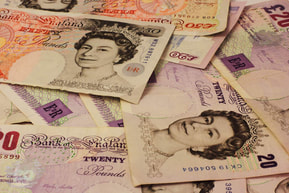 However, even if you admit your mistake and avoid a lawsuit, your publisher will have suffered a financial loss as a result, so they may (probably will) reclaim any advance of royalties that was paid and also claim back any costs they incurred in publishing your book. You may end up severely financially damaged anyway even if you admit your error. So, when you have that great thought for your book, do make sure that it is an original thought and not a memory of someone else’s work, resurrected from the deepest recesses of your brain. What to do about someone plagiarising or actually stealing your work is more complex. Let’s take plagiarism to start with. Most authors can’t afford to take legal action, so they need to take a diplomatic approach first. 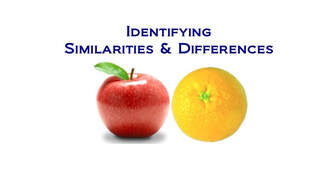 The first step is to “compare and contrast” the two books. Ideas can’t be copyrighted, so the fact that you had the idea to locate your story on a planet a thousand light years from Earth, which is populated by Green Pixies, and the other author did the same, is not proof of plagiarism. You have to be able to prove that the story is substantially the same as yours throughout. That means going chapter by chapter and identifying the similarities – and the differences. The greater the ratio of similarities to differences, the stronger your case, and vice versa. You also have to be able to prove that your book was copyrighted and published before the other version, which is why having a copyright date included in your book is so important. If the book has been published by more than one publisher, which sometimes happens, then it is the first publication date that is the important one, not the latest date. Because of the time it takes to write and then publish a book, the publication date could be years after the copyright date.. The next thing to do is to try to contact the author, point out the similarities with your work and ask them, politely, to withdraw the book. You shouldn’t accuse them of plagiarism, because that could provoke a counteraccusation of slander. 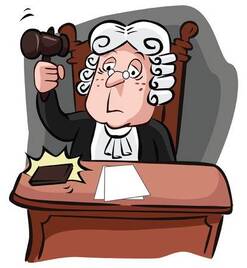 In the UK the Copyright Tribunal will examine cases of copyright theft and plagiarism. Contact them before you do anything more. Present them with all your evidence. Their email address is c[email protected] Other countries may operate similar forms of copyright dispute resolution, so check your own government’s websites. We’ll assume that the tribunal has found in your favour, so if the other author denies the similarities or refuses to remove the book despite the tribunal’s ruling, then a solicitor’s (lawyer’s) letter will usually do the trick. The threat of legal action, backed by the tribunal’s findings and with the accompanying financial consequences, is usually enough to make the other party see sense. A solicitor’s letter can cost anything from £30 (plus VAT) upwards, depending on how much time the solicitor has to spend on it. Ask the solicitor how much they expect the cost to be before you commit yourself.  However, if the letter fails to achieve the desired result, don’t go to court just yet. Instead, contact the retailers (this could be quite a few businesses) and ask for the book to be removed from sale. If the Copyright Tribunal has found in your favour you will have a strong case. If they didn’t, the retailers may decide to do their own investigations before removing the title from sale. If the retailers don’t agree with you, you have a choice: take the risk of legal action or just suck it up and let it go. If you have deep pockets you may decide to stand on your principles and go to court, but for most authors the consequences of losing are too high. 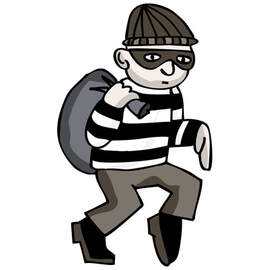 What about the direct theft of your work by someone who has published it under another name? Well, it is unlikely that you will ever be able to track the thief down. They know they have broken the law, so they will have done their best to conceal their identity. Copyright theft is a “civil” offence, not a criminal one, so the police won’t get involved. Tracking the thief down yourself isn’t really an option. You simply don’t have the resources necessary. Even if you make progress, the trail will probably end in a country that isn’t very good at co-operating on international law and you are entering the lottery of a legal system with which you are unfamiliar, and which may be unsympathetic to your case. If you have used the Copyright Tribunal, mentioned earlier in the blog, their adjudication can be used to require retailers to remove the offending books. The publisher (if you have one) or retailer(s) may decide to pursue the thief because of their financial losses, but that is unlikely. 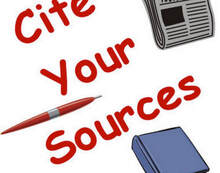 There is one more word of caution I must offer. It is quite common to quote the work of other people in your otherwise original work. There are circumstances when you may do that, providing it is properly credited, but these mainly relate to non-fiction and academic works. You may also do that if you are critiquing the work, reviewing it or using it for the purposes of parody or sarcasm. The relevant clauses in the law are known as “fair use” or “fair dealing”. The rule is to keep the quotes as short as is necessary to get the message across and to make sure you credit the originator. Just naming the originator may not be enough, you may have to provide a full reference to the publication, date of publication, publisher etc. This website provides guidance on how to cite your sources. 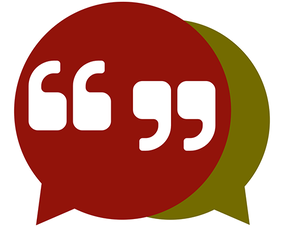 It is quite common to see quotes of the lyrics of songs or lines of poetry at the start of a book or at the beginning of chapters, as they usually convey some message that is relevant to the story. You must obtain the consent of the originator of the words if you wish to use them in that way. Some poets, authors and songwriters will give that freely, but many require payment. The music industry is particularly litigious when it comes to the use of song lyrics without permission. If you plan to use quotes like that and don’t ask permission, you do so at considerable financial risk. At the very least you will probably have to delete the offending words from the book and re-publish it without them. So, that brings us to the end of our quick gallop through the world of plagiarism and copyright law. We hope you found it interesting and now have a better idea of what you can and can’t do. However, I include links to more authoritative sources if you want to know (yawn) more. For the UK: https://www.legislation.gov.uk/ukpga/1988/48/contents For the USA: https://www.copyright.gov/title17/ If you have enjoyed this blog, or found it informative, then make sure you don’t miss future editions. Just click on the button below to sign up for our newsletter. We’ll even send you a free ebook for doing so.
0 Comments
Leave a Reply. |
AuthorThis blog is compiled and curated by the Selfishgenie publishing team. Archives
June 2025
|
 RSS Feed
RSS Feed